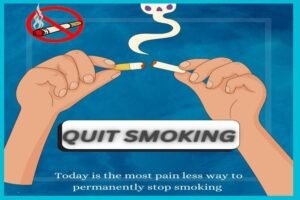Addiction is a powerful force that can grip individuals in an intense cycle of physical, emotional, and psychological dependency. Whether the addiction is to substances like drugs and alcohol, or behaviors such as gambling, food, or even technology, it exerts a control that can be overwhelming. But as many who have faced addiction know, breaking free is not only possible—it’s a journey worth taking.
Functional medicine PPC, a holistic approach to healthcare focusing on addressing the root causes of illness, is gaining popularity. Pay-Per-Click (PPC) advertising can be a powerful tool to reach patients seeking functional medicine services.
Functional Medicine and Local SEO: A Powerful Combination
Functional medicine local SEO, with its holistic approach to health, is gaining popularity. To reach patients in your local community, effective local SEO is crucial. Here’s why:
1. Target Specific Patients: Local SEO helps you reach people in your area who are actively searching for functional medicine practitioners. By optimizing your website for relevant keywords, you can attract patients seeking natural and personalized healthcare.
2. Build Credibility: Local SEO can enhance your online reputation. Positive reviews and testimonials from satisfied patients can boost your credibility and attract more people to your practice.
Understanding the Nature of Addiction
Addiction is more than just a lack of willpower or a series of bad decisions. It’s a complex interplay of biological, psychological, and social factors. Many times, it stems from a combination of genetics, brain chemistry, trauma, or environmental influences. The brain’s reward system plays a significant role in addiction, as it begins to associate certain substances or behaviors with feelings of pleasure or relief. Over time, these repeated behaviors become ingrained, making it difficult for individuals to simply “quit” without significant effort and support.
To move beyond addiction requires an understanding of these dynamics. Breaking the physical dependency is often the first step, but the psychological and emotional layers can take longer to unravel.
The Power of Acceptance
One of the most important parts of recovery is acknowledging the presence of addiction. Denial can be a major roadblock, often prolonging the process of healing. Acceptance is the foundation of recovery—an admission that life has become unmanageable under the grip of addiction and that help is needed.
For many, this step is both humbling and empowering. While it may feel like a surrender, it’s actually the first act of regaining control. Reaching out for help from family, friends, or professionals marks the beginning of the journey to reclaiming life from the shadows of addiction.
Building a Support System
Recovery is not a solo journey. It requires the support of a community that understands and encourages progress. This might come in the form of close family members, friends, or professional counselors. Many people find strength in support groups like Alcoholics Anonymous (AA), Narcotics Anonymous (NA), or SMART Recovery. These groups provide a safe space where individuals can share their experiences, find encouragement, and learn from others who are further along the recovery path.
The power of these groups lies in their shared understanding. Participants don’t feel judged or misunderstood because everyone there has experienced addiction in one form or another. This creates a sense of belonging that can be a lifeline during the most challenging moments of recovery.
Healing the Mind and Body
The process of recovery is not just about quitting the addictive behavior; it’s about healing the whole person. Addiction often leaves behind deep emotional scars, unresolved traumas, and physical damage. Part of the recovery process involves addressing these wounds.
Therapies like cognitive-behavioral therapy (CBT), trauma-focused therapy, or mindfulness-based approaches can help individuals understand the underlying causes of their addiction. By working through past traumas or emotional pain, individuals can prevent relapse and find healthier ways to cope with stress or negative emotions.
Physical health also plays a significant role in recovery. Regular exercise, a balanced diet, and adequate sleep help the body heal from the toll of addiction. Engaging in activities that bring joy and fulfillment, whether it’s creative expression, outdoor adventures, or meditation, can help rebuild a positive sense of self.
The Road to Long-Term Recovery
One of the most challenging aspects of addiction recovery is maintaining it long-term. It’s common to face setbacks or relapses, but these should not be seen as failures. Instead, they are opportunities to learn and grow stronger in the face of challenges. Recovery is not a linear process but one that has ups and downs, victories and setbacks.
Establishing healthy routines, avoiding triggers, and continuing to seek support are critical in maintaining sobriety. Life after addiction doesn’t mean life without problems, but it does mean finding healthier, more constructive ways to face them.
Reclaiming Life
As individuals move beyond addiction, they often find a renewed sense of purpose. Without the chains of addiction holding them back, they are free to pursue goals, dreams, and relationships that had once seemed out of reach. For many, the journey of recovery becomes a path of self-discovery and empowerment.
Life after addiction offers the opportunity to rebuild relationships, forge new paths, and contribute to the world in meaningful ways. It’s a life where individuals are no longer defined by their addiction but by their resilience, strength, and determination to live fully.
Final Thoughts: Breaking Free
Breaking free from addiction is one of the most courageous journeys a person can undertake. It’s not easy, and it requires effort, patience, and support, but it is possible. The road to recovery is filled with challenges, but every step forward is a step toward a life of freedom, peace, and fulfillment.
Addiction doesn’t have to define your life. Breaking free is the beginning of reclaiming your true self, and the journey beyond addiction is where true healing begins. Remember, every day in recovery is a victory, and every step forward is a testament to your strength.






More Stories
Registered massage therapy comes in Montreal
Can CBD Balm Help with Migraines? What
The Journey to Wellness: Signs Wellbutrin